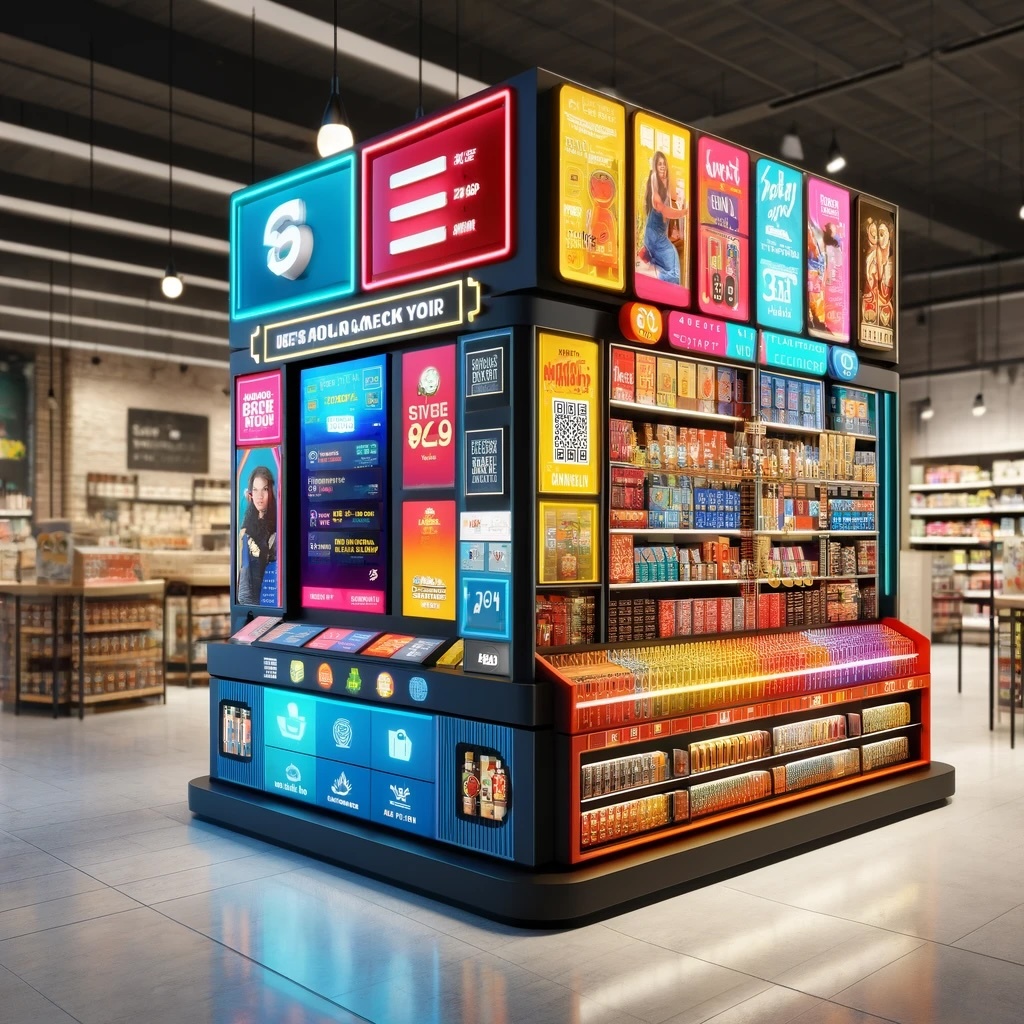
Point of Purchase (POP) displays are powerful marketing tools designed to capture consumer attention and drive sales at the retail level. Effective POP displays can significantly influence purchasing decisions by creating a memorable shopping experience. Here are some tips to help you create a better Point of Purchase display:
1. Understand Your Audience
Before designing your POP display, it’s crucial to understand your target audience. Consider demographics, shopping habits, and preferences. Tailoring your display to resonate with your audience ensures it grabs their attention and encourages them to engage with your product.
2. Location is Key
The placement of your POP display can make or break its effectiveness. High-traffic areas such as store entrances, checkout lines, and aisle endcaps are prime locations. Ensure your display is easily visible and accessible to maximize exposure and engagement.
3. Keep It Simple and Focused
A cluttered display can overwhelm customers and dilute your message. Keep your design clean and focused, highlighting the key benefits of your product. Use concise, impactful messaging and high-quality images to draw attention without overwhelming the shopper.
4. Incorporate Strong Visuals
Visual appeal is paramount in catching a shopper’s eye. Use bold colors, eye-catching graphics, and attractive fonts to create a visually appealing display. Incorporate elements that align with your brand’s identity to create a cohesive look that reinforces brand recognition.
5. Utilize Interactive Elements
Interactive elements can engage customers and create a memorable shopping experience. Consider incorporating touchscreens, QR codes, or product samples that encourage shoppers to interact with your display. These elements can provide additional information, offer promotions, or demonstrate product benefits.
6. Highlight Special Offers
POP displays are an excellent opportunity to promote special offers, discounts, or limited-time deals. Clearly display any promotions to create a sense of urgency and incentivize immediate purchases. Use signage and call-to-action phrases like “Limited Time Offer” or “Buy One, Get One Free” to draw attention.
7. Leverage Lighting
Proper lighting can significantly enhance the visibility and attractiveness of your display. Use spotlights or LED strips to highlight key products and draw attention to specific areas of the display. Well-lit displays are more likely to catch the eye and create a positive impression.
8. Ensure Durability and Stability
Your POP display needs to withstand the rigors of a retail environment. Use durable materials that can handle foot traffic and remain stable throughout the promotional period. A sturdy, well-constructed display reflects positively on your brand and ensures that your products are always presented in the best light.
9. Tell a Story
Storytelling can make your display more engaging and memorable. Use your POP display to tell the story of your product or brand, highlighting its unique features, benefits, and origins. Creating an emotional connection with shoppers can increase their interest and likelihood of making a purchase.
10. Evaluate and Optimize
Once your POP display is in place, monitor its performance and gather feedback. Track sales data, observe customer interactions, and solicit feedback from store staff and shoppers. Use this information to make necessary adjustments and optimize your display for future campaigns.
Conclusion
Creating an effective Point of Purchase display requires a strategic approach that combines visual appeal, customer engagement, and promotional tactics. By understanding your audience, choosing the right location, and focusing on simplicity, you can design a POP display that captures attention and drives sales. Remember to incorporate interactive elements, highlight special offers, and ensure your display is durable and well-lit. Telling a compelling story and continuously evaluating your display's performance will help you refine your approach and achieve even better results in future campaigns.



